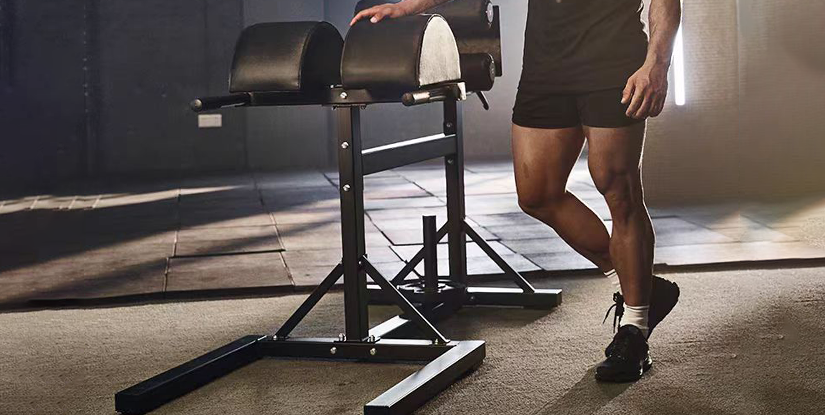Wholesale Fitness Equipment - Bulk Gym Equipment & Commercial Supplies

Wholesale Fitness Equipment: Strategic Sourcing for Retailers and Gyms
Purchasing wholesale fitness equipment requires a strategic approach that balances product quality, cost efficiency, and reliable logistics. Whether you supply commercial gyms, boutique studios, corporate wellness programs, or retail stores, understanding product categories, supplier credentials, and after-sales support is essential to protect margins and reputation.
Key Product Categories
- Cardio Machines: Treadmills, ellipticals, exercise bikes, rowing machines and stair steppers designed for commercial or home use.
- Strength Equipment: Plate-loaded machines, selectorized equipment, free weights, racks, benches and cable systems for diverse training needs.
- Functional Training: Rigs, rigs accessories, kettlebells, battle ropes, TRX systems, sleds and plyometric platforms.
- Accessories & Consumables: Mats, resistance bands, straps, flooring, grips and replacement parts—often high-margin repeat sales.
Supplier Evaluation and Quality Assurance
Prioritize suppliers with documented quality systems and third-party certifications (ISO 9001, CE, EN standards). Request material specifications, load ratings and fatigue test data for structural products. For commercial deployments, insist on warranties and spare parts availability to minimize downtime. Conduct factory audits or use third-party inspection services to verify production capacity and quality control processes.
Pricing, MOQ, and Customization
Wholesale pricing depends on volume, customization and component quality. Negotiate tiered pricing based on order quantities and multi-year commitments. Minimum order quantities (MOQs) vary—accessories often have low MOQs, while large machines may require higher commitments. OEM and private-label options allow branding, but expect design lead times and minimums.
Logistics and Fulfillment Considerations
Plan for freight optimization—consolidated shipments, container loading efficiency and accurate packaging dimensions reduce shipping costs. For commercial equipment, account for white-glove delivery, assembly and installation charges. Consider bonded warehousing or regional distribution centers to shorten lead times and support returns handling.
Regulatory Compliance and Safety
Ensure equipment complies with regional safety standards and chemical regulations (e.g., REACH, RoHS where applicable). Provide clear user manuals, labeling and maintenance guides. Liability exposure can be mitigated by robust warranties, end-user training offerings and documented maintenance schedules.
After-Sales Support and Spare Parts
Long-term supplier relationships hinge on reliable after-sales support. Confirm spare parts availability and lead times, technician training programs, and remote troubleshooting capabilities. Establish SLAs for part replacement and repairs for commercial clients to protect revenue and reduce churn.
Marketing and Sales Strategies for Resellers
Differentiate your offering with bundled services—installation, maintenance contracts, and training sessions. Use high-quality product imagery, spec sheets and video demonstrations to reduce pre-sale friction. Target segments with tailored value propositions: durability and warranty for commercial buyers; space-efficiency and price for home fitness customers.
Risk Management and Negotiation Tips
- Request samples before large orders to validate build and finish.
- Negotiate payment terms tied to inspection and delivery milestones.
- Include clear dispute resolution and warranty clauses in contracts.
- Diversify suppliers to avoid single-source disruptions.
Final Checklist Before Placing a Wholesale Order
- Verify certifications, test reports and warranty terms.
- Confirm MOQ, price breaks and sample availability.
- Assess logistics costs: freight, duties and installation.
- Plan inventory and spare parts stocking to minimize downtime.
FAQs
- What is MOQ for gym equipment? - It varies: accessories low, machines higher; confirm with supplier.
- How to verify supplier quality? - Request certifications, test reports and third-party audits.
- Are warranties standard? - Commercial warranties are common; verify terms and exclusions.
- Can I OEM or private-label products? - Yes; expect design fees and minimums.
- How to handle shipping bulky items? - Use container optimization and white-glove delivery options.
- What certifications matter? - ISO, CE, EN standards and regional safety approvals.
- How to manage spare parts? - Negotiate parts availability and lead times contractually.
- Is installation included? - Sometimes; clarify scope and costs before order.
- How to reduce procurement risk? - Order samples, diversify suppliers and set clear SLAs.

